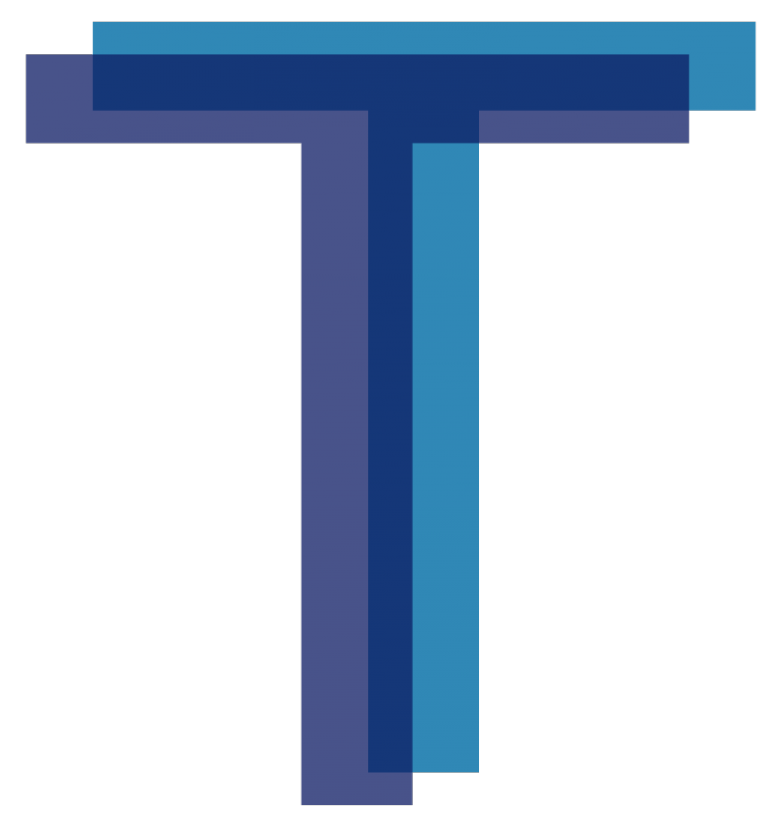– a prelude to Bolsonaro’s presidency
Prior to president Bolsonaro’s rise to government, a range of right wing and neoliberal think tanks have been able to change the public discourse in Brazil. Primarily in opposition to the consecutive governments of the Partido dos Trabalhadores (Workers Party) led by Luiz Inácio Lula da Silva and Dilma Rousseff, right wing circles have expanded activities in the academic, media and youth sectors in particular. Fuelling the protests against the elated Roussef government in particular leading to her early dismissal in 2016, the register of right wing think tanks has created the new conservative and neoliberal civil society space that enabled the Bolsonaro victory in 2018. Many of the key think tanks are organized in the global Atlas Network founded back in 1984 in the United States by Anthony Fisher, a disciple of Friedrich August von Hayek[1]. This post[2] will survey and analyze important members of the Brazilian Atlas family.
Big picture of Atlas Network in Brazil
Atlas presently mobilizes no less than 15 think tanks in Brazil (see Table 1): Instituto Atlantos, Instituto de Estudos Empresariais (IEE), Instituto de Formação de Líderes de Belo Horizonte (IFL-BH), Instituto de Formação de Líderes de Santa Catarina (IFL-SC), Instituto de Formação de Líderes de São Paulo (IFL-SP), Instituto Liberal, Instituto Liberal de São Paulo, Instituto Liberdade, Instituto Líderes do Amanhã (ILA), Instituto Ludwig Von Mises Brasil (IMB), Instituto Millenium, Observatório do Empreendedor, Livres, Centro Mackenzie de Liberdade Econômica (Centro Mackenzie), e Students for Liberty Brasil (SFL Brasil).
Most of the think tanks are based in São Paulo, Rio de Janeiro and Porto Alegre. Livres, Instituto Líderes do Amanhã and Instituto de Formação de Líderes of Santa Catarina are some exceptions located in Recife, Belo Horizonte and Santa Catarina, respectively. In addition to fixed staff — composed of an operational, governing, and advisory body — the group of think tanks features an interchangeable staff of columnists and speakers. Instituto Mises is one of the largest think tanks in the Brazilian Atlas family, with 33 specialists mentioned on the website and at least 18 employees, according to its LinkedIn page. On the other hand, the smallest think tank in the Brazilian network seems to be Instituto Liberal of São Paulo, with four directors, who are also columnists. In a general, these think tanks operate with a small number of employees, inviting activists, intellectuals and recruiting students as volunteers for their activities. Many think tanks of the group thus provide a shell for variable activities.
The first Brazilian Atlas think tanks were founded in the 1980’s as a way of defending the interests of certain entrepreneurial elites in the process of re-democratization altogether with the creation of a new Constitution. In this period, Instituto de Estudos Empresariais and Instituto Liberal were inaugurated, with Instituto Liberal financed and tied with Atlas since its foundation.[3] However, most of them were created after 2010 in reaction to the “pink tide” of left leaning Latin American governments from Venezuela to Argentina during the commodity boom, and as the nucleaus of a new right-wing movement that was emerging in Brazil.
In addition to local funding from big companies, like Gerdau, RBS Group and Itaú Bank, as well private individual donors, the Brazilian Atlas family has enjoyed strong support from the international Atlas network. Between 2010 and 2018, the umbrella organization in the United States transferred approximantely US $ 35 millions to promote think tanks activities and actions around the globe. The largest shares went to European (US $ 11,4 millions) and South American (US $ 7,2 millions) think tanks. However, the Brazilian Real and other currencies in Latin America are more devalued than the Euro, making the amount quite significant for the economic realities of Latin American countries. All transfers were registred as “economic education” purpose in the Forms 990 published by Atlas in accordance with U.S. law on not for profit organizations[4].
All the Atlas think tanks have in common a world view broadly based on neoliberalism, although some are orthodox radicals while others integrate with mainstream views. Added to that, while Instituto Mises Brasil, Instituto Liberdade and Instituto Liberal focus their actions on ideas — such as defending the pure application of Mises and Hayek frameworks and Ayn Rand’s philosophy as well —,Institituto Mackenzie and Livres act concretely to shape politics through reports, lobby and prepare candidates for leadership positions in politics. The network is made up of think tanks with different specializations and there is a perceptible division of labor in their operation. This is evidenced by the fact that some think tanks, like Students for Liberty Brazil and Instituto Atlantos, are concentrated in universities and promote courses for university students, while others, like Instituto Líderes do Amanhã and Instituto de Formação de Líderes, focus on training entrepreneurs and building the relationship between them and politicians. On the other hand, there are also institutes in the network that focus almost exclusively on the production of reports aimed at politicians who propose ever more radical austerity measures, like Instituto de Estudos Empresariais and Instituto Millenium in particular.
The international Atlas network supports Brazilian think tanks in different ways including funding, socialization, and training. To be part of the network, think tanks must meet official criteria: they have to share Atlas’s world views, operate independently with a diverse base of voluntary support, have a regular online presence and budget that supports a full-time work team. In this manner, these think tanks can join in the activities that the organization promotes, they can receive funding for projects and can send their staff members and activists to particpate in training and seminars conducted at Atlas headquartes in the United States. In the case of Brazil, these institutes work as local hubs dedicated to the promotion of neoliberalism, publishing both domestic material and featuring content obtained from foreign Atlas organizations (what Botzem and Plehwe 2009 have called “strategic replication”).[5]
The main actors of Atlas Network in Brazil
Of the 15 members total, seven think tanks stand out. In documents and publications the Atlas Network mentions mainly the following think tanks: Instituto de Estudos Empresariais, Students for Liberty Brazil, Instituto Atlantos, Centro Mackenzie, Livres and Instituto Mises Brasil. Articles refeer to the main projects developed by these institutes — some co-funded or funded by Atlas — and the grants or awards that these projects received in the Atlas context. This club of seven thus can be considered the most important Brazilian members of the international Atlas family.
One of the main activities developed in Brazil and covered by Atlas is the Fórum da Liberdade (Freedom Forum). The event has been held since 1988 by Instituto de Estudos Empresariais in Porto Alegre, Rio Grande do Sul. The meeting that brings together politicians, businessmen, intellectuals and activists is reported by Atlas as one of the main events that influence the political direction of Brazil. Due to the Fórum da Liberdade, IEE has already been awarded or was a finalist in many Atlas competitions. Similar events take place in North America and Europe.
In addition, Instituto Mises Brasil can be mentioned as a think tank which has focused on promoting neoliberal ideas in academia, publishing more than 50 books in Brazil and launching the first libertarian post-graduate program with a university. Recently, the same institute was mentioned as an influent think tank in social media by former Atlas president, Alejandro Chafuen. In the following table all the references to Brazilian think tanks in Atlas documents, websites and interviews are presented.
Apart from the programs and activities it is important to recognize the preparation and education of think tank professionals as a key aspect of Atlas operations in Brazil. In the space created by Atlas think tanks, intellectuals are groomed who spread neoliberal ideas related to ministers of state and right wing politicians – a new class of organic intellectuals of the new right. These relations occur mainly in regional forums promoted by Instituto de Formação de Líderes and Instituto de Estudos Empresariais. Furthermore, people who are part of Atlas think tanks have taken courses at Atlas and some have been elected or assumed positions in Jair Bolsonaro’s government.
As example, the current Minister of Economy of Bolsonaro government, Paulo Guedes, and the Vice-President, Hamilton Mourão, have already been participated in foruns promoted by Atlas think tanks. Added to that, Guedes is one of the Instituto Millenium founders. Moreover, the outstanding example is the congressman Kim Kataguiri (Democrats Party). He was one of the main articulators of the protests for president Rousseff’s impeachment in 2016 and was trained in Atlas courses. Furthermore, other congressmen ellected in 2018 was formed in courses promoted by Atlas partner SFL Brazil, like Giuseppe Riesgo (Novo Party) in Rio Grande do Sul. Think tanks receive Atlas funding to promote these meetings and trainings on a regular basis. Due to lack of response to the Covid crisis and many other shortcomings of the ruling forces of authoritarian neoliberalism in Brazil, the time of the present government of Jair Bolsonaro may be running out. Opinion polls show a steep drop in popularity of current president at the same time in which Lula’s candidacy is beginning to develop momentum. On the another hand, due to the considerable expansion of neoliberal think tanks in civil society, the influence of neoliberals in public affairs will last much longer. Neoliberal think tanks in Brazil will continue to feed news media and influence policy makers waiting for the next window of opportunity to exert political power from government positions.
[1] DJELIC, Marie-Laure; MOUSAVI, Reza. How the Neoliberal Think Tank went global: the Atlas Network, 1981 to the present. In: MIROWSKI, Philip; PLEHWE, Dieter; SLOBODIAN, Quinn. Nine lives of neoliberalism. London; New York: Verso Books, 2020. p. 257-283.
[2] The article presents an empirical mapping of Atlas Network’s actions and actors in Brazil. It briefly addresses an overview of Atlas think tanks in the country and their links with the U.S. organization. The information and data presented were collected through interviews with think tank boarders and documental analysis available at the Atlas website and its think tanks. Most of the information presented is part of the master’s thesis entitled “In the battle of ideas: goals, means and actions of Atlas Network in Brazil”, written in the Brazilian Postgraduate Program in International Strategic Studies (PPGEEI), at the University of Rio Grande do Sul (UFRGS). Although it is not the focus of this article, it is important to mention that the research employed a neogramscian paradigm to study these think tanks, a theory which is concentrated on the concepts of organic intellectuals and hegemony.
[3] ROCHA, Camila. “Menos Marx, mais Mises”: uma gênese da nova direita brasileira. 2018. Tese (Doutorado em Ciência Política) – Departamento de Ciência Política, Universidade de São Paulo, São Paulo, 2018. Disponível em: https://www.teses.usp.br/teses/disponiveis/8/8131/tde-19092019-174426/pt-br.php. Acesso em: 06 jan. 2021.
[4] The data were collected through the analysis of Forms 990 and the audit reports for 2011, 2012, 2013, 2014, 2015, 2016, 2017, 2018 and 2019, published by Atlas at the following address: https://www.atlasnetwork.org/about/annual-reports.
[5] Botzem, S./Plehwe, D. Transformation globaler Machtstrukturen: Private Organisationen als Akteure grenzüberschreitender Ordnungsbildung, In: Dingwerth, K./Kerwer, D./Nölke, A. (eds.): Die Organisierte Welt. Internationale Beziehungen und Organisationsforschung. Baden-Baden: Nomos, pp. 263-289.


